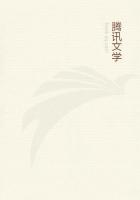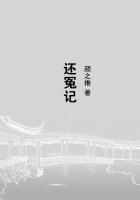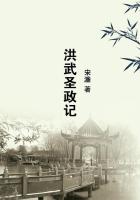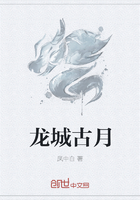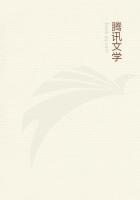Each animal is thought to have a proper pleasure, as it has a proper function; viz. that which corresponds to its activity. If we survey them species by species, too, this will be evident; horse, dog, and man have different pleasures, as Heraclitus says 'asses would prefer sweepings to gold'; for food is pleasanter than gold to asses. So the pleasures of creatures different in kind differ in kind, and it is plausible to suppose that those of a single species do not differ. But they vary to no small extent, in the case of men at least; the same things delight some people and pain others, and are painful and odious to some, and pleasant to and liked by others. This happens, too, in the case of sweet things; the same things do not seem sweet to a man in a fever and a healthy man-nor hot to a weak man and one in good condition. The same happens in other cases. But in all such matters that which appears to the good man is thought to be really so. If this is correct, as it seems to be, and virtue and the good man as such are the measure of each thing, those also will be pleasures which appear so to him, and those things pleasant which he enjoys. If the things he finds tiresome seem pleasant to some one, that is nothing surprising; for men may be ruined and spoilt in many ways; but the things are not pleasant, but only pleasant to these people and to people in this condition. Those which are admittedly disgraceful plainly should not be said to be pleasures, except to a perverted taste; but of those that are thought to be good what kind of pleasure or what pleasure should be said to be that proper to man?
Is it not plain from the corresponding activities? The pleasures follow these. Whether, then, the perfect and supremely happy man has one or more activities, the pleasures that perfect these will be said in the strict sense to be pleasures proper to man, and the rest will be so in a secondary and fractional way, as are the activities.
6
Now that we have spoken of the virtues, the forms of friendship, and the varieties of pleasure, what remains is to discuss in outline the nature of happiness, since this is what we state the end of human nature to be. Our discussion will be the more concise if we first sum up what we have said already. We said, then, that it is not a disposition; for if it were it might belong to some one who was asleep throughout his life, living the life of a plant, or, again, to some one who was suffering the greatest misfortunes. If these implications are unacceptable, and we must rather class happiness as an activity, as we have said before, and if some activities are necessary, and desirable for the sake of something else, while others are so in themselves, evidently happiness must be placed among those desirable in themselves, not among those desirable for the sake of something else; for happiness does not lack anything, but is self-sufficient. Now those activities are desirable in themselves from which nothing is sought beyond the activity. And of this nature virtuous actions are thought to be; for to do noble and good deeds is a thing desirable for its own sake.
Pleasant amusements also are thought to be of this nature; we choose them not for the sake of other things; for we are injured rather than benefited by them, since we are led to neglect our bodies and our property. But most of the people who are deemed happy take refuge in such pastimes, which is the reason why those who are ready-witted at them are highly esteemed at the courts of tyrants; they make themselves pleasant companions in the tyrants' favourite pursuits, and that is the sort of man they want. Now these things are thought to be of the nature of happiness because people in despotic positions spend their leisure in them, but perhaps such people prove nothing;for virtue and reason, from which good activities flow, do not depend on despotic position; nor, if these people, who have never tasted pure and generous pleasure, take refuge in the bodily pleasures, should these for that reason be thought more desirable; for boys, too, think the things that are valued among themselves are the best. It is to be expected, then, that, as different things seem valuable to boys and to men, so they should to bad men and to good.
Now, as we have often maintained, those things are both valuable and pleasant which are such to the good man; and to each man the activity in accordance with his own disposition is most desirable, and, therefore, to the good man that which is in accordance with virtue. Happiness, therefore, does not lie in amusement; it would, indeed, be strange if the end were amusement, and one were to take trouble and suffer hardship all one's life in order to amuse oneself. For, in a word, everything that we choose we choose for the sake of something else-except happiness, which is an end. Now to exert oneself and work for the sake of amusement seems silly and utterly childish. But to amuse oneself in order that one may exert oneself, as Anacharsis puts it, seems right; for amusement is a sort of relaxation, and we need relaxation because we cannot work continuously. Relaxation, then, is not an end; for it is taken for the sake of activity.
The happy life is thought to be virtuous; now a virtuous life requires exertion, and does not consist in amusement. And we say that serious things are better than laughable things and those connected with amusement, and that the activity of the better of any two things-whether it be two elements of our being or two men-is the more serious; but the activity of the better is ipso facto superior and more of the nature of happiness. And any chance person-even a slave-can enjoy the bodily pleasures no less than the best man; but no one assigns to a slave a share in happiness-unless he assigns to him also a share in human life. For happiness does not lie in such occupations, but, as we have said before, in virtuous activities.
7

